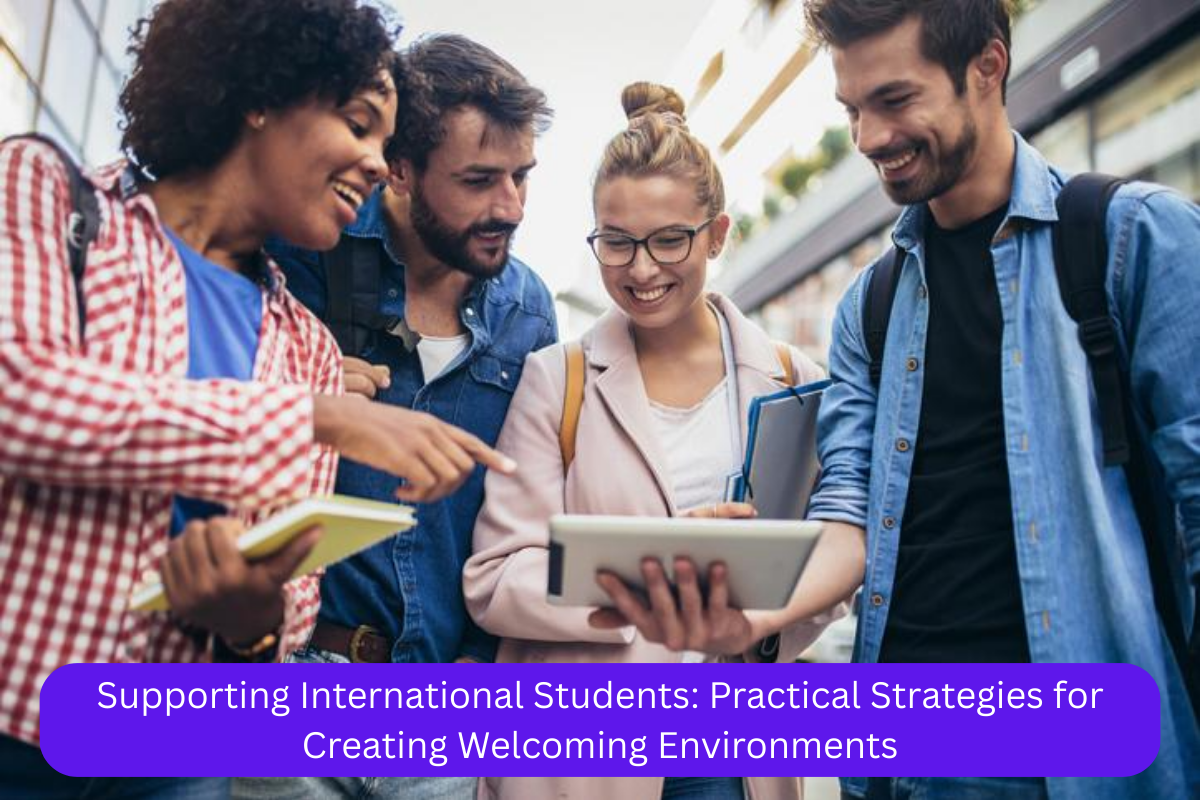The experience of studying abroad can be both exciting and challenging for international students. Adapting to a new culture, education system, and social environment can be overwhelming. That’s why it’s essential to create welcoming environments that foster inclusivity, support, and emotional well-being for students from around the world. Cambridge Network is dedicated to helping educational institutions and communities implement practical strategies to support international students and make them feel at home. By integrating these strategies, institutions can help international students succeed academically, socially, and personally.
Why is Supporting International Students Important?
International students often face unique challenges, including:
- Cultural Adjustment: Navigating new social norms, language barriers, and cultural differences.
- Academic Pressure: Adapting to a different education system, workload, and teaching style.
- Homesickness: Being far from family and friends can create emotional distress.
- Social Integration: Building a network of friends and connections in an unfamiliar environment.
Creating a welcoming environment ensures that international students can overcome these challenges and fully immerse themselves in the academic and cultural experiences offered by their host institutions.
Practical Strategies for Creating Welcoming Environments for International Students
Creating a supportive and welcoming environment requires intentional planning and collaboration. Here are practical strategies that can make a significant difference in the experiences of international students:
1. Cultural Orientation and Support
Providing orientation programs that address cultural differences, the academic system, and practical aspects of living in a new country is essential. These programs should include:
- Cultural workshops that highlight the local customs, values, and expectations.
- Campus tours to familiarize students with facilities, student services, and other important locations.
- Language support through English language courses or conversation clubs to improve communication skills.
These initiatives help international students feel more comfortable and confident as they transition to their new environment.
2. Peer Mentorship Programs
Pairing international students with local students or fellow international peers can help foster social connections. Peer mentorship programs offer:
- Guidance and support on academic and social matters.
- Friendships and camaraderie that ease the sense of isolation many international students face.
- Cultural exchange opportunities where students learn from one another’s experiences.
Mentors play a key role in helping students adjust and navigate life in a new country.
3. Inclusive Campus Environment
Creating an inclusive campus culture involves:
- Encouraging diversity through inclusive events, cultural celebrations, and student organizations that reflect the diverse backgrounds of international students.
- Training faculty and staff on cultural competence, so they are better equipped to understand and address the needs of international students.
- Celebrating international holidays and cultural events to create opportunities for cultural exchange and community building.
An inclusive environment fosters a sense of belonging and encourages international students to feel valued.
4. Academic Support Services
International students may encounter challenges in adjusting to different academic expectations and teaching styles. Providing academic support is essential:
- Tutoring services for students who need additional help with course content or language barriers.
- Study skills workshops that address time management, writing, and research techniques.
- Writing centers to support students with academic writing, especially for those for whom English is a second language.
These support services help students thrive academically while addressing any challenges they may face.
5. Emotional and Mental Health Support
International students may face emotional challenges such as homesickness, anxiety, and stress. It’s vital to provide:
- Counseling services that cater to the specific emotional and psychological needs of international students.
- Support groups where students can connect with others who share similar experiences.
- Workshops on coping strategies to manage stress and maintain emotional well-being.
Providing emotional support helps students build resilience and improves their overall mental health during their academic journey.
6. International Student Networking Opportunities
Creating networking opportunities allows international students to build relationships and connections that will benefit their academic and professional careers. These opportunities include:
- Career services that offer job placement, internships, and resume-building support.
- Networking events with alumni and industry professionals who can offer guidance and career advice.
- Social events that bring together international students from different regions, fostering cross-cultural friendships and collaborations.
Networking strengthens students’ sense of belonging while preparing them for success after graduation.
FAQs About Supporting International Students
1. Why is it important to create a welcoming environment for international students?
Creating a welcoming environment helps international students feel safe, supported, and valued, enabling them to succeed academically, socially, and personally.
2. How can institutions provide academic support to international students?
Institutions can offer tutoring services, study workshops, writing support, and academic advising to help international students adjust to the educational system.
3. What role do peer mentorship programs play?
Peer mentorship programs provide international students with guidance, support, and social connections, helping them integrate into their new academic and social environment.
4. How can cultural orientation programs benefit international students?
Cultural orientation programs help students understand the local culture, academic expectations, and practical aspects of living in a new country, easing their transition.
Conclusion
Supporting international students is about more than providing academic resources; it’s about creating a holistic, welcoming environment that addresses cultural, emotional, and social needs. Cambridge Network’s strategies for creating welcoming environments provide international students with the tools and support necessary to thrive in a new country. By implementing these practical strategies—such as cultural orientation, peer mentorship, inclusive campus activities, and emotional support—educational institutions can ensure that international students feel welcomed, supported, and empowered to succeed.
